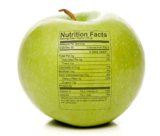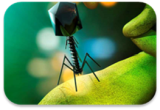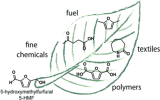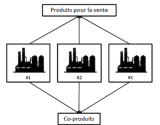
Integration of research and transfer towards 'naturalness', 'soft technologies' and 'sustainability'
The second pre-competitive RITA-CTAQ co-creation network is an inclusive Quebec platform for collaboration between research institutions and the food processing industry. This network was launched in September 2019, after a co-creation process involving forty-nine food processing companies and more than thirty researchers. Companies and researchers have developed thirteen research and development activities in the form of pre-competitive projects, all of which are integrated under the aegis of the second network. The identified objectives and solutions generated will be mutually beneficial to all participating industries, including the dairy, bakery, meat, vegetable, ingredient and packaging sectors.
"an inclusive Quebec platform for collaboration"
The network draws on the expertise of 28 highly qualified researchers from ten Quebec research institutions. Participating researchers are recognized for their many successes such as the Chair in Food Safety and Quality (Monique Lacroix, INRS), the NSERC Prolamina Industrial Research Chair in Safe, Smart and Sustainable Packaging (3SPack) (Abdellah Ajji, Polytechnique Montréal), the NSERC Industrial Research Chair in Metabolic Activities and Functionality of Bioprotective Lactic Cultures (METABIOLAC) (Ismail Fliss, ULaval, INAF) and the Director at STELA (Steve Labrie, ULaval, INAF). They also received prestigious awards: Valérie Orsat (McGill University), winner of the Suffrage Science Award in Engineering and Physical Sciences (March 2021); Jennifer Ronholm (McGill University), winner of the World Economic Forum’s Young Scientist Award (2020).
Theme A
The development of multidimensional platforms of multifunctional natural ingredients and technologies to accelerate innovation and increase the competitiveness of the food industries
A1: Development of multidimensional approaches (e.g. an intelligent platform) to identify and select multifunctional natural ingredients McGill University, Centre de recherche et de développement de Saint-Hyacinthe - Agriculture and Agri-Food Canada
A2: Mapping of existing and emerging technologies to accelerate innovation and to increase the competitiveness of Québec's food industries Cintech agroalimentaire, McGill University
Theme B
Better understanding of the consumers perception of naturalness; and the development of approaches and technological solutions (packaging, ...) allowing for a clean label and to increase the pro-health aspect of food
B1: The naturalness of food products: a multi-method approach to better understand consumer perceptions and their behavior HEC Montréal, Université Laval

B2: Development of active packaging solutions for the prolonged storage of sensitive food products Polytechnique Montréal, ITEGA, McGill University
B3: Support for the development of foods fortified with protein, vitamin D and iron Université Laval, McGill University
Theme C
Investigation of targeted strategies to ensure food safety while maintaining a clean label
C1 : Development of bioprotective cultures and natural ingredients with antifungal activity for the bioconservation of bakery and pastry products Université Laval, McGill University
C2 : Development of antifungal and antibacterial ingredients from natural sources and the process of their encapsulation to maintain the quality of grated cheese INRS, McGill University, Université Laval
C3 : Technologies allowing for minimal treatment while maintaining the integrity of nutrients. Piezo-steam (ultrasonic and steam treatment) and cold plasma, applied to vegetables and meat products McGill University
C4 : Developing innovative approaches to decontaminate dry ingredients Cintech agroalimentaire
Theme D
The exploration of sustainable solutions to reduce the use of cleaning water and food waste, as well as the valorization of by-products and underutilized products
D1 : Biofilm Control: Innovative solutions for the reduction of contamination and the optimization of cleaning
Université Laval, Centre de recherche et de développement de Saint-Hyacinthe - Agriculture and Agri-Food Canada

D2 : Development of analytical approaches for the determination of quality and the detection of microbial contamination of food (maple syrup, flours, cheeses, spices) McGill University
D3 : New approaches to high-value carbohydrate by-products (lactose, ...) and contribute to the sustainability of the industry McGill University

D4 : Valorization of industrial co-products with high commercial value Centre de Développement Bioalimentaire du Québec, Université Laval
Partners

New : Fast Track Call for Competitive Project Proposals
The RITA Consortium announces the launch of a Fast-Track call for competitive project proposals resulting from precompetitive RITA-CTAQ II network.
Indeed, some industrial partners are very interested in the progress achieved so far for selected research activities of our network, and this accelerated call for proposal for competitive projects would allow efficient technology transfer adapted to the needs of the companies participating in the second network.
In this regard, please let us know your needs and your intention to pursue a specific competitive project. We could facilitate the development and implementation of these accelerated competitive projects.
To be eligible, the project has to:
- Result from a research activity of the RITA-CTAQ II pre-competitive network (A1 to D4)
- Start as early as possible, but end no later than June 30, 2023.
- Include a financial participation of industrial partners representing a minimum of 20%.
The financial aid granted by RITA can represent up to 70% for a maximum of $160,000 per project.
To apply, you must complete the following documents and return them consortiumrita [at] mcgill.ca (by email), including:
- Accelerated Project Request Form (instructions at the end of the form)
- Detailed budget of the project
- Participating industry information form
Please note that, the application requests will be processed as they are received.
Any questions or comments about this new component of RITA's Collaborative and Competitive Platform, please consortiumrita [at] mcgill.ca (contact us) and it will be a pleasure to guide you through the steps and support you in the applying process.

